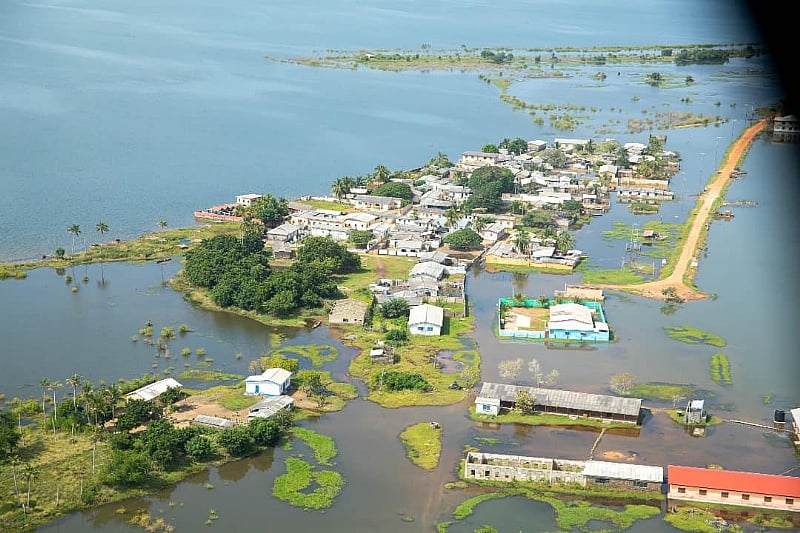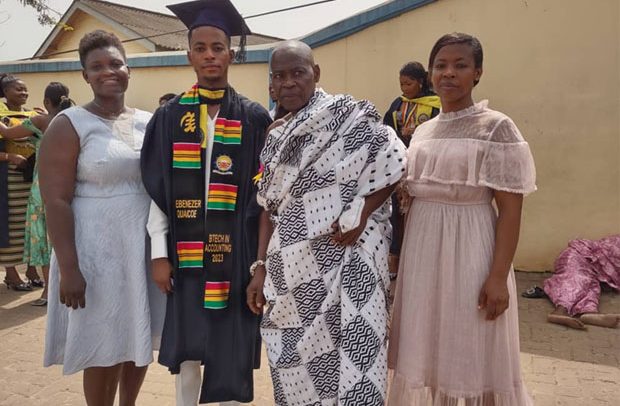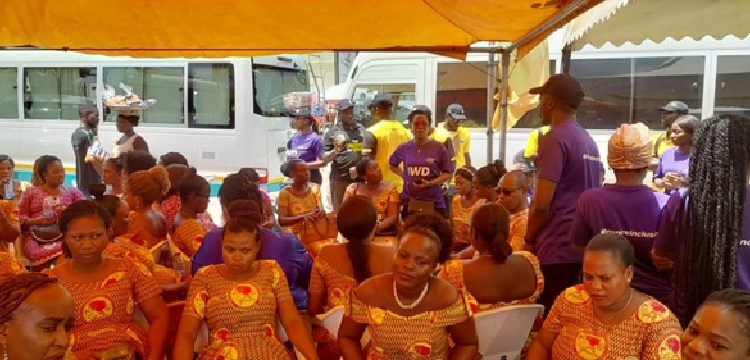
A Deputy Minister of Information, Nana Dokua Asiamah Adjei, who disclosed this yesterday at a flag-raising ceremony to mark World Press Freedom Day in Accra said: “the impact on the industry is being examined by the government and will be addressed within the broader government economic response programme to be announced later.”
The day was meant to celebrate the heroic work of journalists, take stock of their work and address the challenges they face in the course of exercising their right to press freedom.
The event was held on the theme “Journalism without fear or favour” and was attended by veteran journalists, managers and editors of media houses, as well as stakeholders in the communication industry.
Already some media associations have jointly petitioned the government to include the media in stimulus packages announced by the President to mitigate the impact of the COVID-19 on households and the business community.
The group together detailed the adverse toll the pandemic was having on media houses despite journalists’ incessant contribution to the fight against COVID-19.
Nana Dokua Adjei said the mandate of the media was tested when new challenges confront the world, adding that the COVID-19 pandemic had revealed yet again the key role of the press in tackling societal challenges.
“We salute the impeccable role the media is playing in informing, educating and sensitising the Ghanaian public in this COVID-19 era. Your constant education on the observation of safety protocols, coverage of the national updates and features on case management are worth commending,” she noted.
Speaking on the theme, she called for a more coordinated and deepened efforts between the various stakeholders as far as the media landscape was concerned.
In an address the chairman of the National Media Commission (NMC), Yaw Boadu Ayeboafoh strongly advised the media to cross-check facts from reliable sources before publication.
He challenged journalists to verify the authenticity of stories before publishing them as non-verification could lead to misinforming the public.
“It was wrong and unprofessional for journalists to pick information from social media platforms and use it for news without verifying it,” he emphasized.
Chairman of the NMC said the media had the responsibility of providing credible information to enable people to make the right decisions and choices and that must be done bearing in mind the national interest.
Mr Ayeboafoh said the media industry was becoming more complex with the emergence of digital and citizen journalism.
He noted that potentially harmful misinformation and disinformation could be inimical to the fight waged by the government against the COVID-19 and “can lead to a lot of grief and difficulty.”
“There should be accuracy in what you convey, it is critical we can agree on facts, but when it comes to public discourse, the truth, the accuracy is paramount, especially in emergencies of this nature where the slightest of misinformation, the slightest inaccuracy, misinterpretation, can lead to a lot of grief and difficulty,” he stressed.
Commending the Ghanaian media for being an “invaluable ally” in the fight against the pandemic, the President of the Ghana Journalists Association, Affail Monney said he was “happy the way the media has responded in the midst of the crisis.”
However, there was a need that the media be responsible and truthful in their reportage on the issues surrounding the COVID-19.
There were solidarity messages from UNESCO, GIBA, PRINPAG, GCRM and Editors Forum. Read Full Story





















Facebook
Twitter
Pinterest
Instagram
Google+
YouTube
LinkedIn
RSS